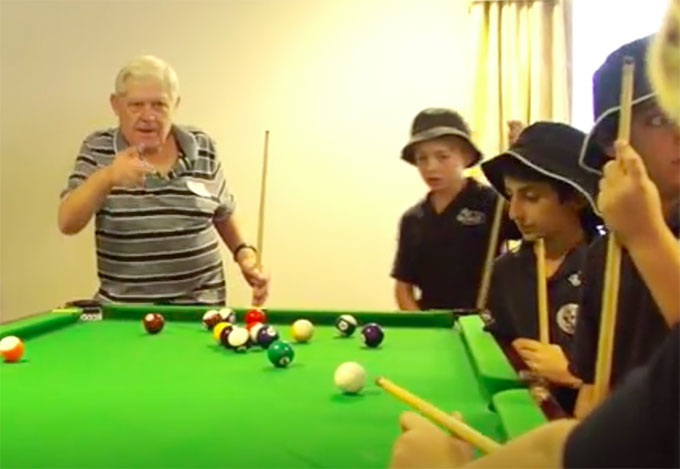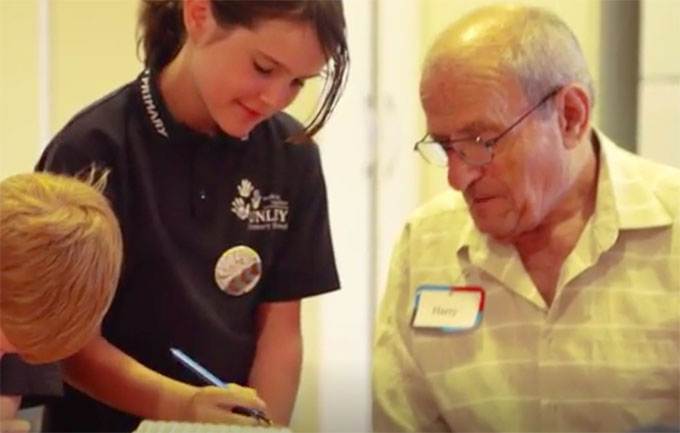New research shines a light on how school-based dementia education for young kids could sow empathy for elders and improve dementia knowledge and awareness among younger generations.
We know that education and cognitive health are closely linked, but a new study from researchers at the University of Southern Australia — aided by a cohort of fun-loving young children and older adults who spent eight weeks together gardening, doing arts and crafts, and playing pool — shows a completely different side of the important role education plays in easing the challenges of dementia.

“Dementia is the second leading cause of death in Australians and the leading cause of death in older women. We have no medications that prevent or treat dementia. And so the best strategy that we have is to educate the next generation on how to live well with dementia,” Dr. Ashleigh Smith, lead researcher and cognitive aging expert, said in a video interview.
Smith and the University of Southern Australia worked with partners including a primary school and a memory care facility to create an eight-week program focused on mentorship and education. According to Smith’s team, the findings reveal how intergenerational dementia education can transform the way young people treat older people — and in doing so it can help dissolve ageism, a societal issue that is just as prevalent as dementia if not more so.
“Children generally don’t know much about people living with dementia unless they have a family member of family friend that has the condition,” Smith said. She added that when children are in primary school, their minds and health beliefs are still malleable, and this is when they are most open to learning new ideas.
“For eight weeks, we taught children about all different aspects of dementia, and from week three of the project, the children also interacted with older people. They participated in art projects, they built gardens together and in fact one of the older gentleman taught a bunch of the eight year old boys how to play pool.”
The program brought together 90 Year four and five students who, over an eight-week period learned about dementia and interacted with older adults, many of whom had a cognitive impairment or dementia diagnosis. Through cooperative activities such as arts and crafts, gardening and playing pool, the older adults took on the role of teachers, mentors and coaches, while the children developed lifelong skills in communication and empathy.
“The older people also really enjoyed interacting with the young people, and they felt engaged with the community and felt valued members of society through being able to teach the younger children,” Smith observed.
After completing the program, children demonstrated significant increases in their knowledge of dementia and improvement in their attitudes about it. Researchers also observed improvements in communication, empathy, understanding and inclusivity.
According to Dr. Smith, one of the biggest challenges program organizers encountered was an unexpected one:
“Actually, one of the biggest challenges we faced in the project was the end of the project, the children on the older adults had built really strong relationships and they wanted to maintain those relationships following the completion of the project,” she said. “So the main findings were that we saw a significant increase in knowledge and attitudes towards dementia in the children, and this increase remained for six months after the end of the intervention.”
“By teaching children about dementia, we’re not only improving their knowledge and fostering positive attitudes towards dementia now, but maybe even reducing their own future risk of dementia as an adult,” she said. “It’s exciting stuff.”
She added: “We know this type of education works; the next step is to find ways to upscale this more broadly.”




